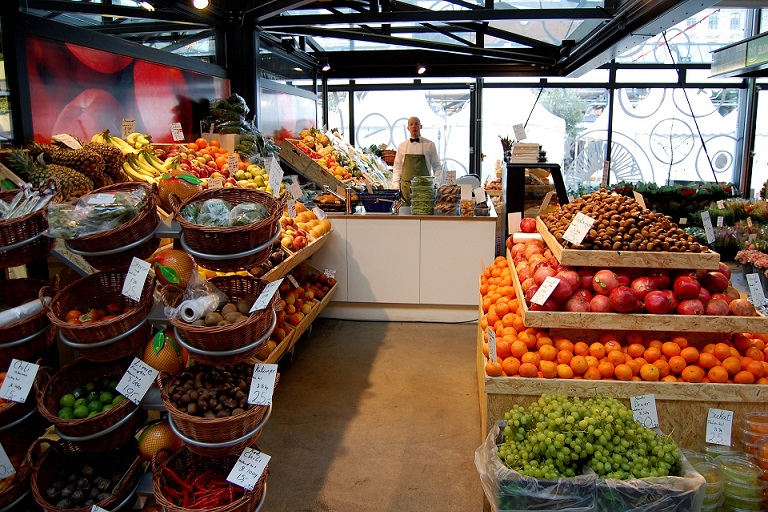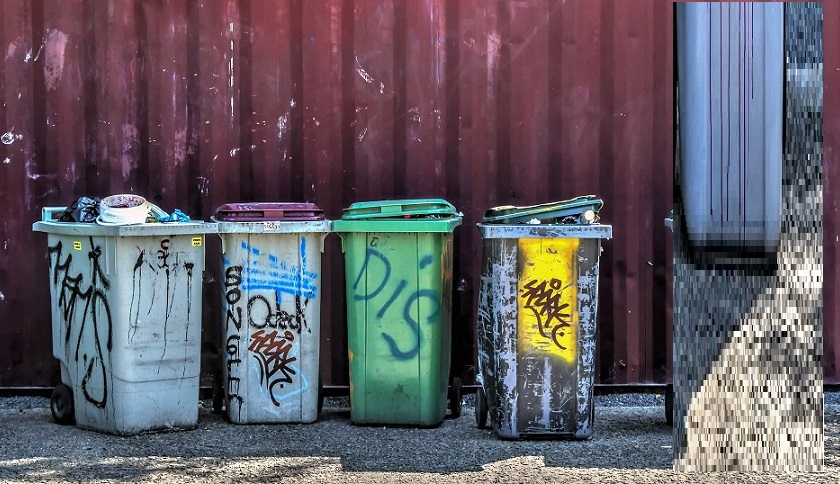Every day, and all over the world, tonnes of food are wasted by millions of homes, industries and companies. And it’s not always because the food is past its sell-by date or in some way unfit for human consumption; it’s thrown into the bin simply because it’s “not needed”. (The Prisma memoirs.)
 Juan Galbete
Juan Galbete
However, despite the overabundance of food products in developed countries, the notion of “hunger” still exists in the collective Western unconscious, a concept very remote from our own societies, but tragically real in continents like Africa, Asia and parts of the Americas, linked by the presence of deaths due to malnutrition and chronic hunger.
According to official statistics issued in September 2010 by the Food and Agriculture Organization of the United Nations (FAO), 925m people throughout the world suffer from food-related problems.
Two thirds of the global population afflicted by malnutrition live in Bangladesh, China, the Democratic Republic of Congo, Ethiopia, India, Indonesia and Pakistan. The areas most severely affected are situated in Asia and Sub-Saharan Africa, whose condition is barely comprehensible for the vast majority of our population, although perhaps more understandable to the homeless and the unemployed.
Freeganism
It is in the world centre of capitalism where consumerism and overabundance reign, New York city itself, where a movement dubbed ‘freeganism‘ has become popular, a form of alternative lifestyle.
The ‘freegans‘ devotes themselves to rescuing the undamaged comestibles thrown away daily by food outlets.
 Those who pursue freeganism do not do so out of a necessity for survival, or even because they’re going through a difficult economic period.
Those who pursue freeganism do not do so out of a necessity for survival, or even because they’re going through a difficult economic period.
The real motive behind their decision to rescue unwanted food is the blatant waste involved in throwing it away while perfectly good, just because it’s “not needed”.
The group believes that food shops give their goods use-by dates which are much earlier than are strictly necessary, and that the reason for this waste is the overabundance of food products. Despite this, food items in good condition can be put to a new use, necessitated by the lack of space in grocery shops. One study of the American food industry by the University of Arizona concluded that 40% of edible goods produced in the U.S end up in the bin without having been consumed. This figure indicates that every year, $40,000m is wasted on unwanted food.
Despite the campaigns…
The authorities in London, another of the centres of global consumerism, have advised people how to put the food they consume to to the best use, and have given details about how to recycle efficiently.
 One example of this is the ‘Recycle for London’ campaign, which aims to prevent wasting, and offers advice about the best way to go about ethical consumption.
One example of this is the ‘Recycle for London’ campaign, which aims to prevent wasting, and offers advice about the best way to go about ethical consumption.
But even so, where are those good practices to be found, while the major food outlets in the U.K throw away tonnes of perfectly good and edible food, every day? One London resident, who preferred not to give his name, said that since moving to the city only two months previously, he has visited the rubbish bins of a well-known English supermarket chain in the centre of London on no less than three occasions. The practice of freeganism is already well underway in Glasgow, a city where the resident lived for several years.
He added that he has always been able to find usable food this way, and that what motivates him was, apart from the excitement, the desire not to waste food products that were still edible.
“As a child, I was told that you shouldn’t throw food away”, he said. Experience has taught him that there are two separate dates on food packages.
 One shows until when the product can still be sold, and the other is the best-before date. The second date is usually only one day after the first and by law, the large grocery shops have to throw away those products which, although they are still usable, cannot now be sold commercially.
One shows until when the product can still be sold, and the other is the best-before date. The second date is usually only one day after the first and by law, the large grocery shops have to throw away those products which, although they are still usable, cannot now be sold commercially.
An end to waste
All this goes to show that initiatives like freeganism make the case that the large-scale waste of food is a real problem in the societies we live in, and currently relevant because of the Christmas season which is just around the corner, when food consumption increases many-fold thanks to the huge quantities of food which are characteristic of these holidays.
However, is it possible to deal with the overabundance, above and beyond movements such as freeganism?
It seems so. In the United Kingdom, there are various projects which offer to put the excess food to good use, an example being ‘Fareshare.
Community Food Network’, a charitable project which started in 2004 and now has 14 branches throughout the country. Using the slogan “No Good food should be wasted”, this nationwide charity is devoted to the redistribution of food with the aim of alleviating nutritional poverty.
 Both the alternative lifestyle espoused by freeganism and the food recycling projects are evidence of the food-related waste endemic in the present system, a capitalist system which does not promote the rational use of resources.
Both the alternative lifestyle espoused by freeganism and the food recycling projects are evidence of the food-related waste endemic in the present system, a capitalist system which does not promote the rational use of resources.
After all, there is still a fundamental contradiction which must be resolved in order to get to grips with the problem.
Why do the authorities allow large food outlets to throw perfectly good products away, when at the same time they promote ‘good practices for recycling”?
While we try to solve the riddle, why not take a look tonight at your nearest supermarket bin. Maybe you’ll find something for dinner.
(Photos: Pixabay)












.jpg)












